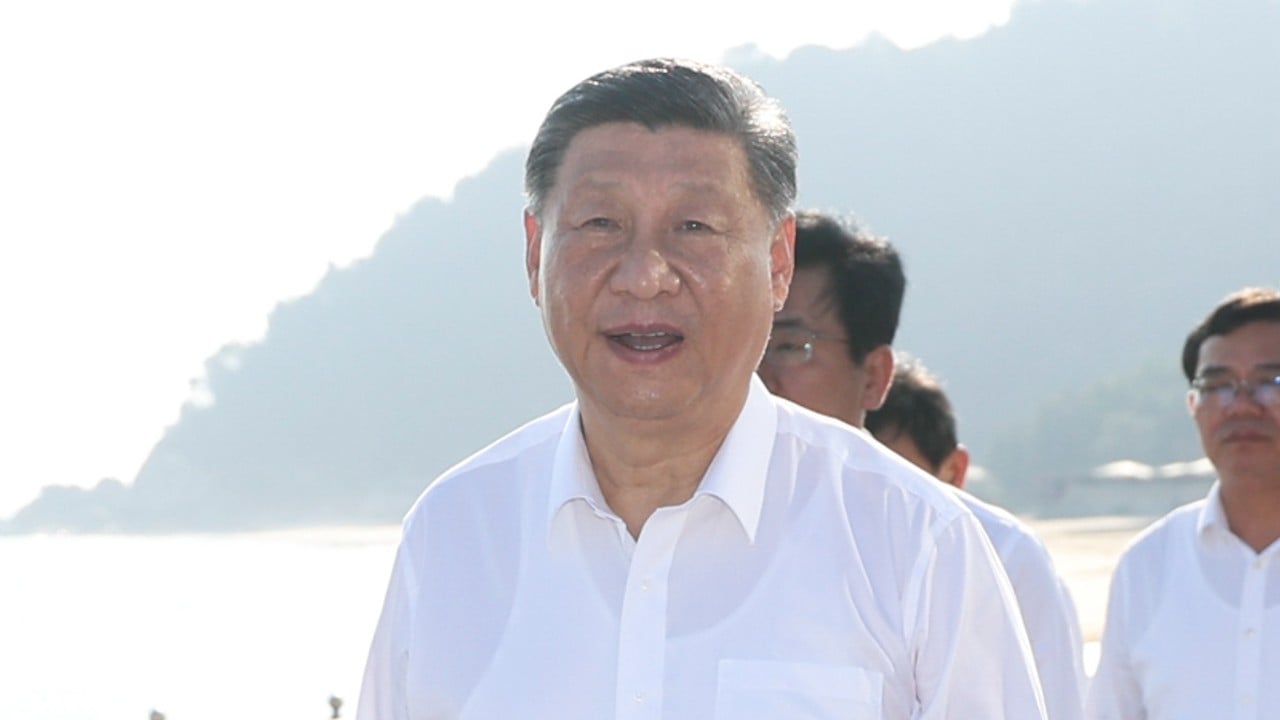Fujian province has become a test bed for mainland China’s push for economic, social and political integration with Taiwan. In this story – third first in a four-part on-the-ground series – Amber Wang examines the rise and fall of the Pingtan economic pilot zone that was once a major draw for Taiwanese businesses, workers and investment.
In 2014, when President Xi Jinping visited a mainland Chinese plant operated by TPK Holding, a leading Taiwanese touch screen manufacturer, the company was held up as a symbol of Beijing’s ambitious promotion of cross-strait economic integration.
A decade later, on a Friday morning in November, the factory in Pingtan, Fujian province, which was once featured on prime-time state television as a success story, appears deserted with its gates locked and rusting, and the production site seemingly abandoned. A security guard said the plant was closed and the company was not hiring, as a dog inside the gate barked at anyone who approached.
Local Taiwanese entrepreneurs refer to the project as a “textbook” failure that shows the exodus of Taiwanese businesspeople from Pingtan, which was designated a pilot zone for cross-strait integration in 2009.
The economic aspect was meant to be part of Beijing’s broader integration strategy and was combined with punitive policies and military pressure on what it sees as the island’s pro-independence forces.
But many Taiwanese businesses that moved to Pingtan in the past 15 years, including TPK, are not doing as well as they used to, with analysts describing the progress of economic integration in Pingtan as “limited”.

02:05
Chinese President Xi visits Taiwan-facing island after PLA blockade drills
Chinese President Xi visits Taiwan-facing island after PLA blockade drills

 By South China Morning Post | Created at 2025-01-03 22:06:19 | Updated at 2025-01-05 21:15:01
1 day ago
By South China Morning Post | Created at 2025-01-03 22:06:19 | Updated at 2025-01-05 21:15:01
1 day ago








